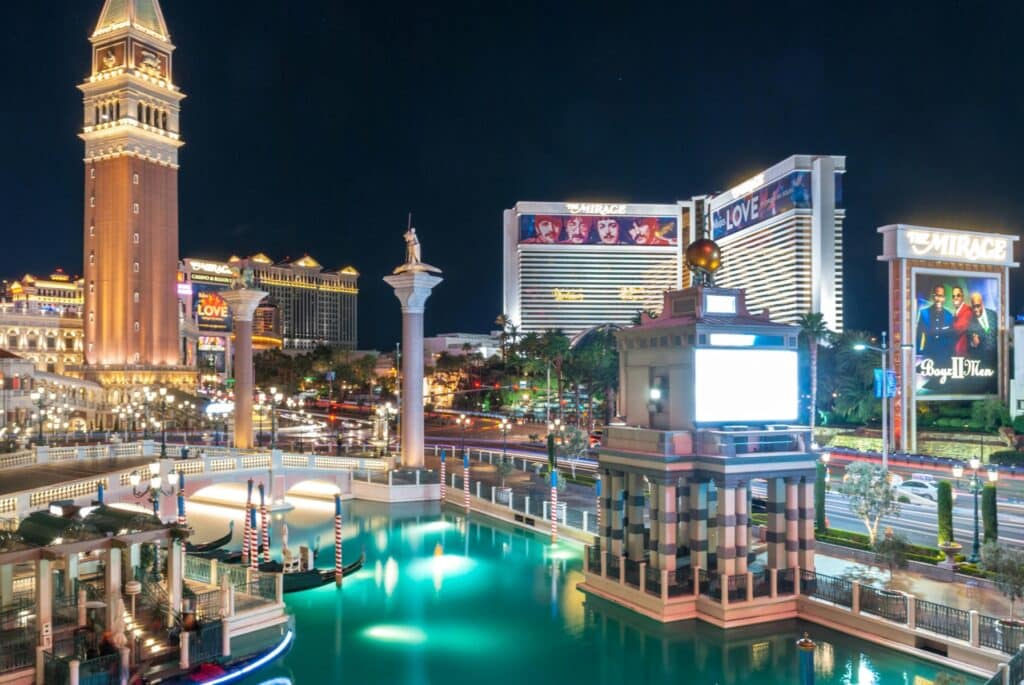
Month after month in 2025, Las Vegas’s tourism numbers continue to drop.
Concerns regarding the city’s economic health are heightened by the Las Vegas Convention and Visitors Authority’s report of an 11.3% decline in visits in June alone, compared to the same month last year.
Recent multimillion-dollar fines for anti-money laundering (AML) violations against major casino operators, such as Wynn, MGM, and Resorts World, coincide with challenges in drawing tourists.
To revitalise the travel and gaming industries, these difficulties have compelled regulators to reassess the operation of salons, or private gaming rooms.
High rollers are typically served in salons, which are private gaming spaces away from the busy casino floors.
Salons are subject to strict regulations since being legalised in 2001. One such regulation is a $500,000 (£370,511) minimum deposit to play, which was subsequently reduced to $300,000 (£222,292) in 2008.
Due to these strict regulations, salon gaming is currently only available at a small number of large casinos on the Las Vegas Strip, and none are open in northern Nevada.
Proposed Changes to Salon Regulations
In response to economic concerns and growing competition from other markets, Nevada’s Gaming Control Board recently proposed loosening salon restrictions.
Notable recommendations include dropping the deposit minimum to $20,000 (£14,819), allowing casinos to set limits based on experience, and officially adding poker to salon games with specific buy-in requirements.
These changes aim to open salons to a broader range of customers while maintaining regulatory oversight.
More tourists looking for private gambling experiences without the daunting financial obstacles currently in place may be drawn in by the move.
In order to attract celebrities or convention leaders who are looking for discreet, low-key gaming opportunities, operators believe that flexibility is essential.
To control risk and support anti-money laundering initiatives, the board must strike a balance between these possibilities and enforcement capabilities.
Regulators are hoping that these changes will boost the city’s gaming industry, as Las Vegas tourism fell by about 11% in 2025 and casino AML fines increased.
A crucial first step in halting the decline of tourism in the face of growing scrutiny and market pressures may be to adapt salon regulations to contemporary realities.
The post Could loosened salon regulations stop the drop in Las Vegas tourism? appeared first on Esports Insider.






